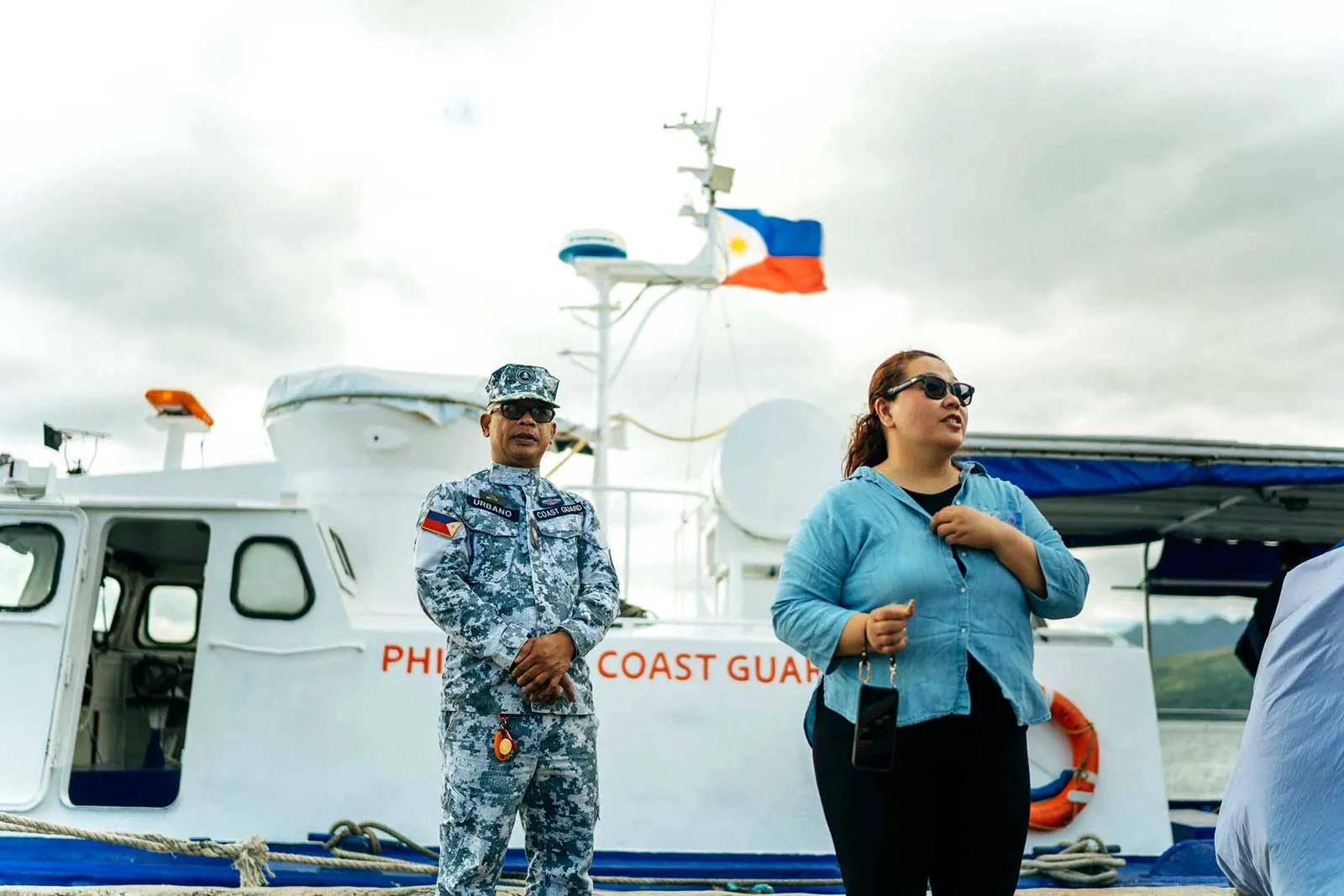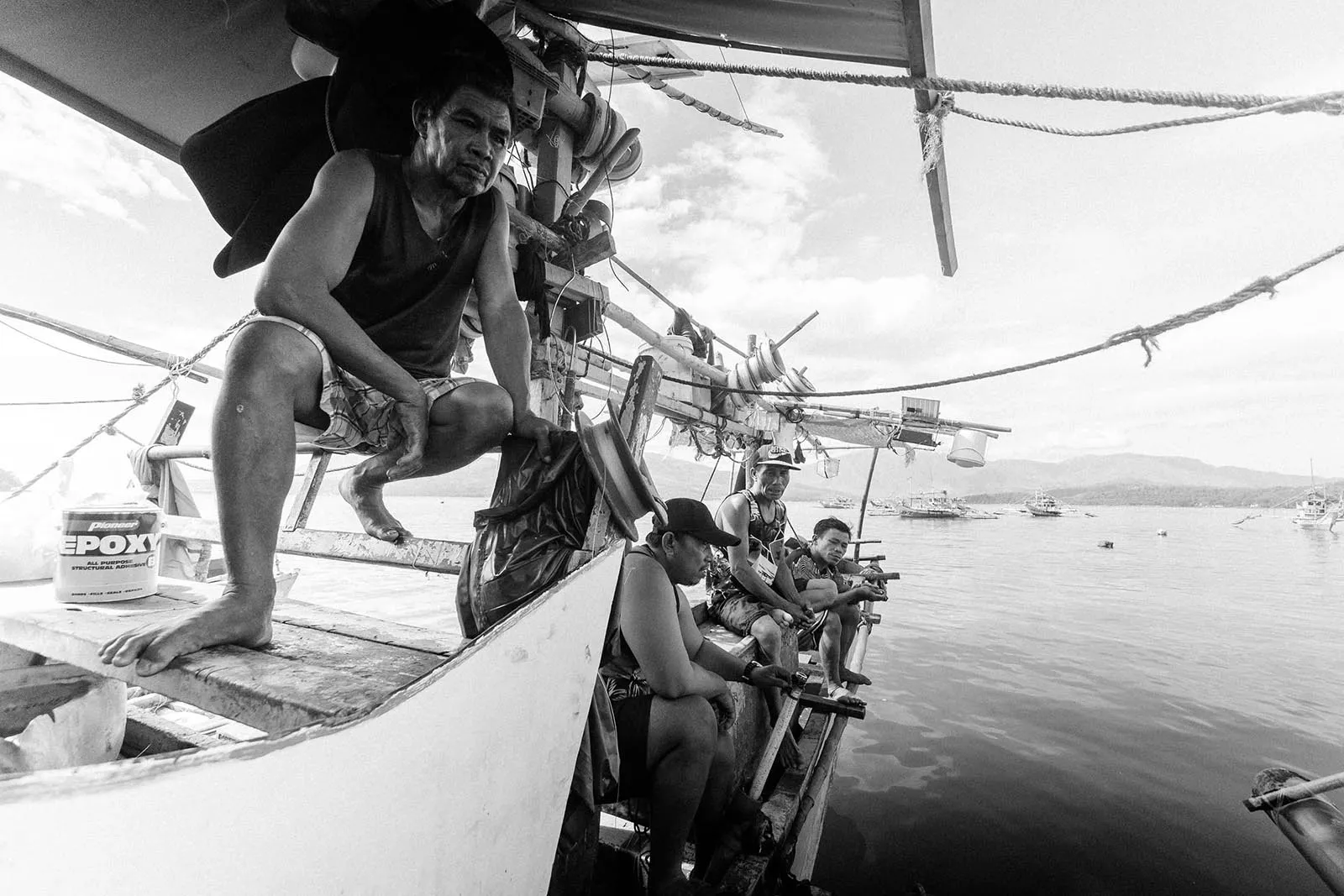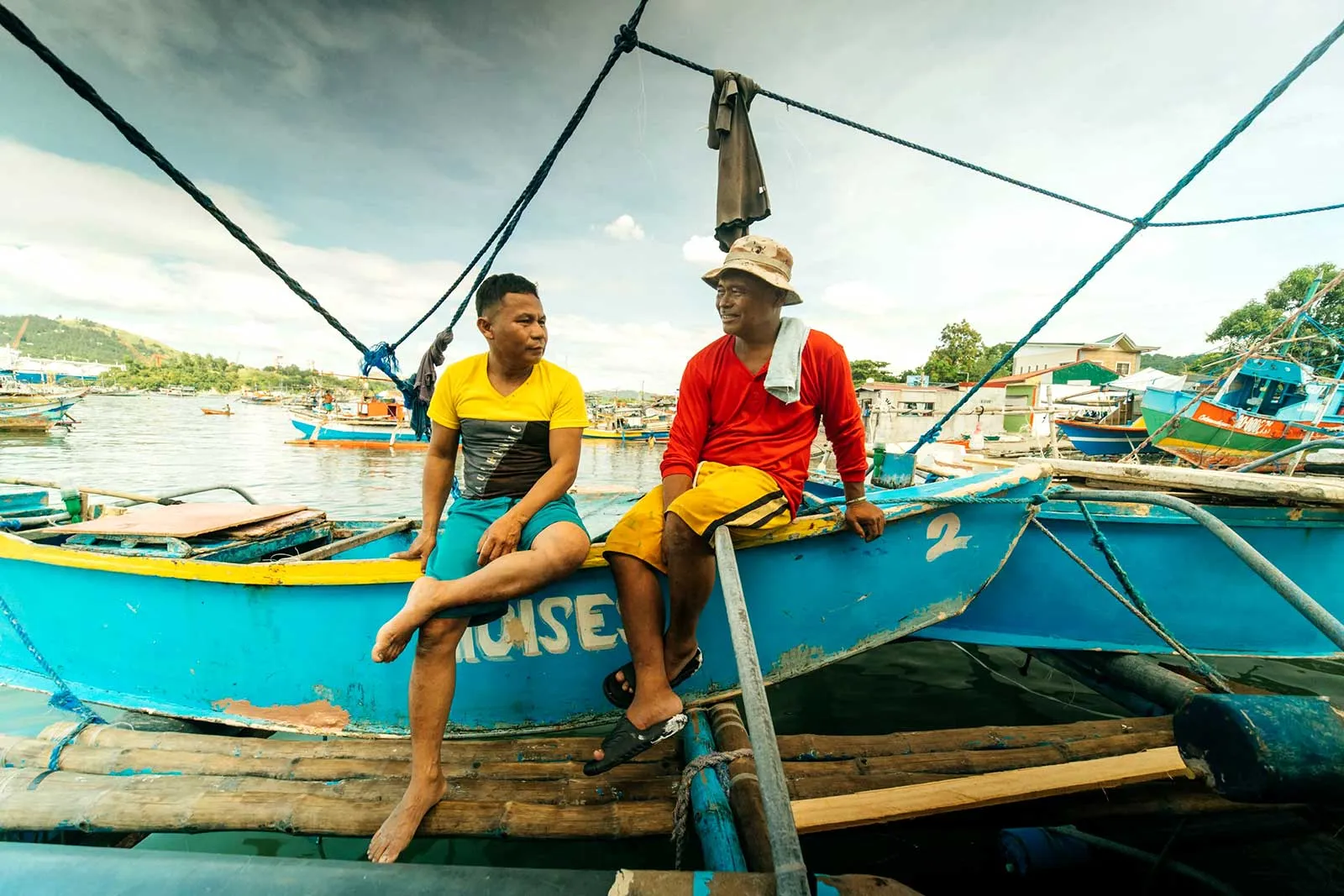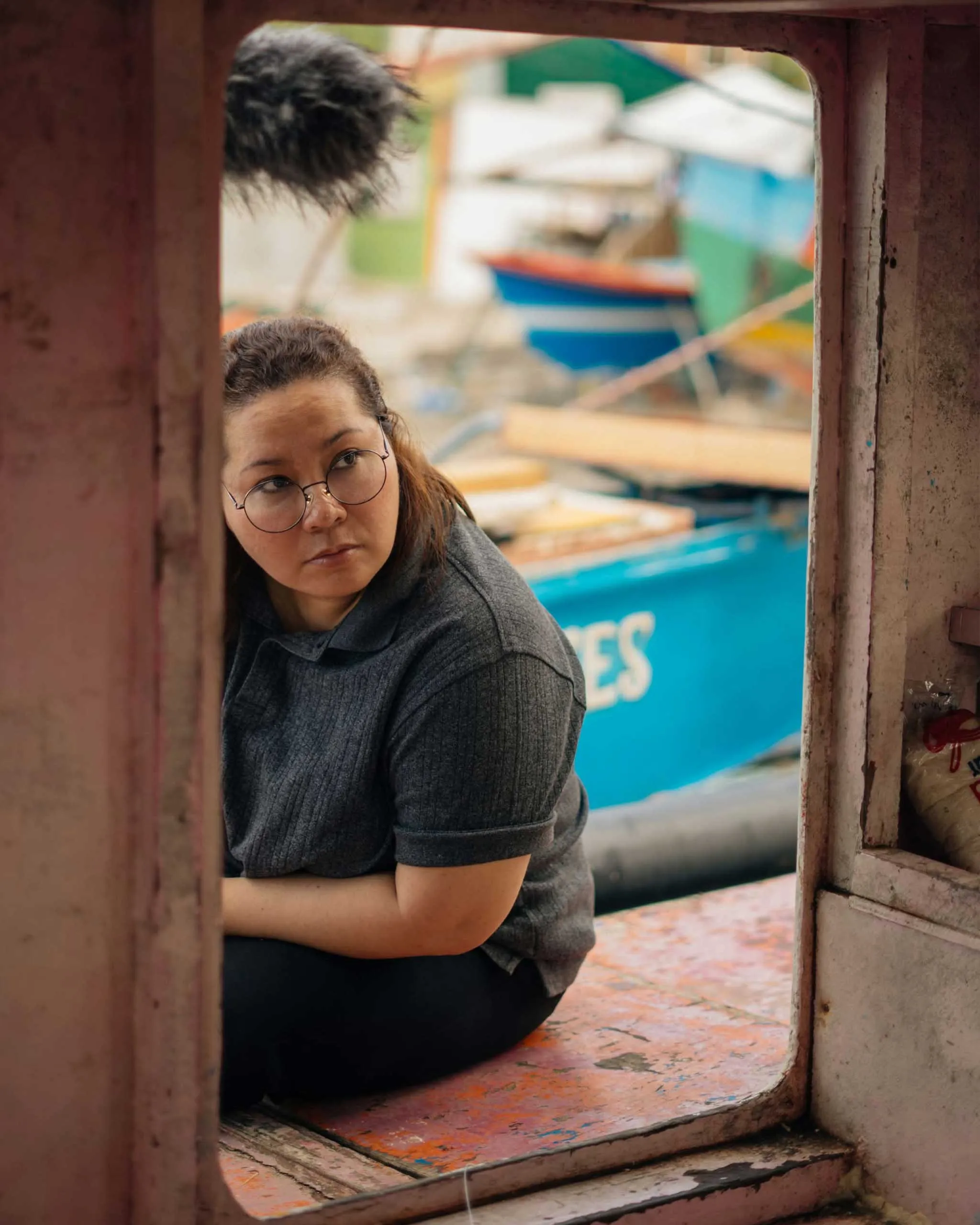Images courtesy of Voyage Studios
A Filipino documentary about a rotation and resupply mission West Philippine Sea has got the Chinese government shaking. While its consulate managed to halt the film’s Philippine premiere last March 12, it couldn’t stop Food Delivery from delivering, and winning an award, at New Zealand’s Doc Edge film festival last June 30, where it was received with thunderous applause and more than a few tears, particularly from the Filipinos in the Auckland audience.
Not that they didn’t try. After the screening and the emotional Q&A, the organizers informed director Baby Ruth Villarama and her team that the Chinese consulate in New Zealand had emailed Doc Edge, claiming that Food Delivery was “rife with disinformation and false propaganda, serving as a political tool for Philippines to pursue illegitimate claims in the South China Sea.” But the organizers assured Villarama that the screening will go on, and that the invitation to meet with the consulate was declined, as they were busy with the awards night. Officially, Doc Edge stated that they stand by their Kaupapa (Māori for principle) and the festival’s independence and curatorial freedom.
“That was like witnessing a class act in diplomacy and how a film festival should run,” Villarama tells Vogue Philippines. “They gave us that platform for our voices to be heard, and for that we are really grateful.”

The idea for Food Delivery came from watching the relentless cycle of news reports. “Every week there’d be a story about reporters being chased, fishermen being chased, coast guards being harassed. Chuck [Gutierrez, producer] and I just looked at each other and said, ‘This is too much. We can’t just sit comfortable and watch as our people struggle.’” As storytellers, they wondered what they could do to help, wielding pen and camera as their weapons.
Food, they realized, was the core issue in the WPS. “It’s all about controlling resources. It’s about making sure that everybody has food on the table, especially the fisherfolk who are feeding their families.” They pitched the idea to the Puregold CinePanalo film festival, who eventually gave them a seed grant to continue their research: “It was through their support this film was made possible.”

Two days before the scheduled premiere came a crushing blow. The organizers informed Villarama that their film couldn’t be screened because of “external factors.” Villarama explains her decision to withdraw the film from CinePanalo: “The entire festival would’ve been on the line. Personally, as a filmmaker, I couldn’t do that to the other films in the lineup, because all of us have worked so hard on these stories.” What was more painful was having to inform the wives of the fishermen and boat operators featured in Food Delivery that it was cancelled. “Some of the wives bought their husbands new shoes and pants, because they wanted to look good for the premiere. Everyone was so looking forward to it.”
Getting to film aboard an AFP vessel was itself a big hurdle that required months of securing permission. “We were actually given only an hour to film in the islands. That’s not enough, to be honest.” There were also other important security factors to consider, which further constrained the filmmakers’ scope. “We were like headless chicken running around and capturing whatever we can, you know, as beautiful as possible, to complete the story, and stay committed to the theme of food. Because that’s the softest power that we can go to avoid a political tone.”
Still, the film can’t help but run into politics, literally. A scene where a Philippine Coast Guard radios an approaching Chinese Coast Guard telling them to leave our EEZ, while the Chinese Coast Guard radios back demanding that the Filipinos vacate their EEZ, feels like absurdist geopolitical theater. But, I can also imagine the scene of the Filipino fisherman named Arnel eliciting cheers as he bravely (perhaps desperately) maneuvers his humble bangka toward the turquoise waters of Scarborough Shoal only to be cornered and chased away by two bigger speedboats. Despite the harrowing pursuit, Arnel manages to laugh. “I’ll find a spot that they’re not watching,” he vows.
These are a few of the vignettes that Villarama weaves together to show what life is like out there, from the beautiful desolation of marines stationed on a tiny spit of an island with no cell reception, to the agonies of the small-scale fisherfolk witnessing their catch dwindle while having to compete with cheaper imports.
“As a director, I needed more time. I wanted to stay on the island for a week. That was the dream,” she sighs, “but a week turned into few hours, and then one hour because of security issues. Chinese vessels were actually behind us, following and monitoring us, and it was important for the RORE mission to be completed because there were several more islands where they had to deliver this sustenance. We couldn’t be the reason for for their delays.”

Filipino fishers have navigated these waters now called the West Philippine Sea for hundreds of years. They’ve harvested the seas sustainably using the traditional simbada method where they leave a payao (fish aggregating device) out in the water for months, allowing fish populations to flourish. When fishers get caught in a storm, they would offer lambanog to other fishers, no matter if they were Vietnamese, Taiwanese, or Indonesian, sharing drink and catch until the skies cleared. “That’s how the relationship has been for ages, but that’s not happening anymore, because the Chinese Coast Guard is blocking every boat that dares enter Scarborough and other features in the WPS.”
The New Zealand audience who attended the world premiere of Food Delivery were not watching political propaganda, simply the personal stories of ordinary Filipinos who continue to show up in the face of insurmountable odds. Villarama’s intention is not to antagonize, but to open eyes. “It’s really a love letter to our Filipino fishermen,” she says, “a letter to China so that hopefully they can see where our people are coming from, and finally hear their experiences, and their voices, for the first time.”
Food Delivery: Fresh from the West Philippine Sea will be shown in Manila on July 27 for one night only. Follow Voyage Studios @voyagestudiosinc for details.
